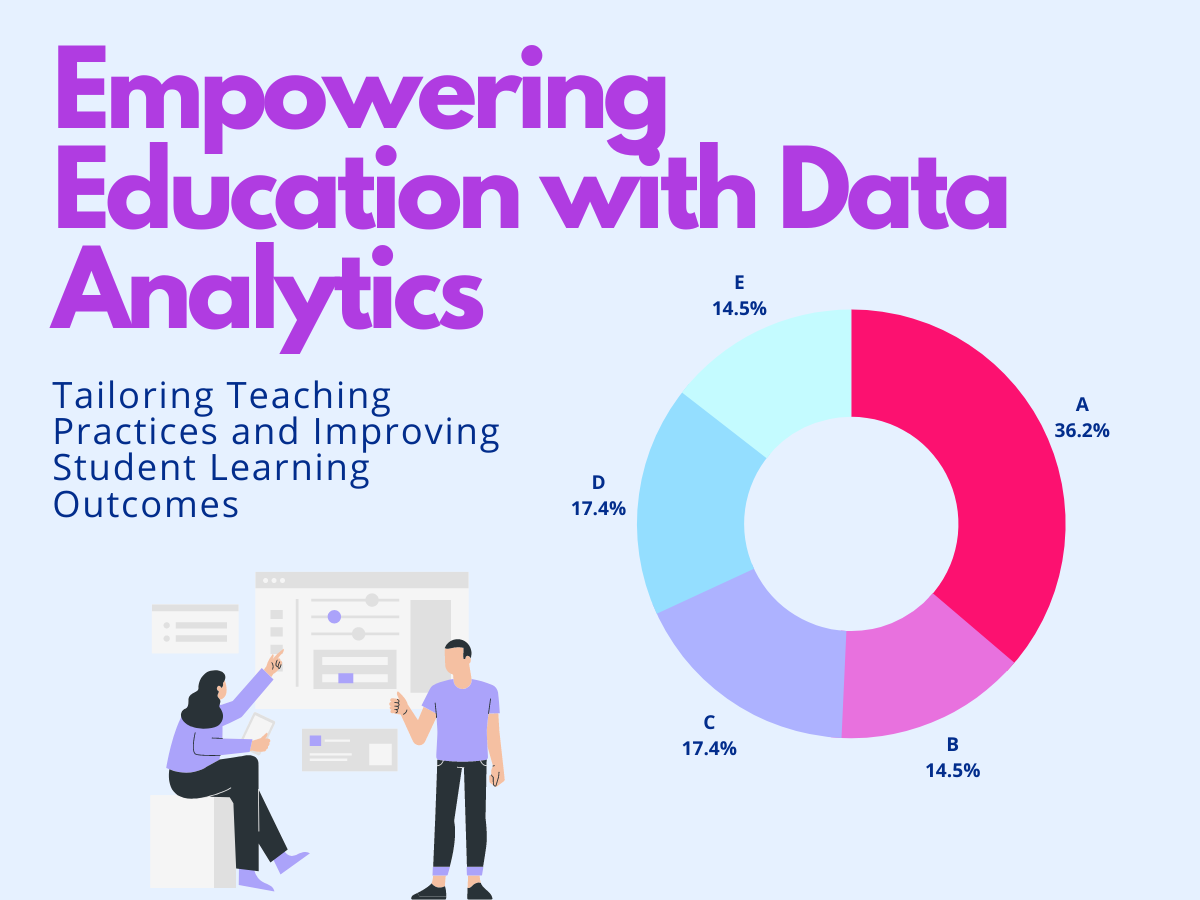Empowering Education with Data Analytics: Tailoring Teaching Practices and Improving Student Learning Outcomes
By~ Scholar Planet
Created At: 30 Apr, 2023

Data analytics has become a
crucial component of the modern-day education system. It helps educators make
informed decisions about their teaching practices and students' learning
outcomes. The use of data analytics is increasingly becoming important in sensitizing
teachers toward their students' needs, identifying areas of improvement, and
promoting more effective teaching methods.
Data analytics in education is the process of collecting, analyzing, and interpreting educational data to make informed decisions about students, teachers, and school performance. By leveraging data analytics, teachers can gain insights into their students' learning patterns and identify gaps in their knowledge. They can then tailor their teaching methods and provide targeted support to help their students succeed.
One of the significant benefits
of data analytics is that it can identify students' learning needs and
preferences. By analyzing student data, teachers can get a better understanding
of each student's strengths, weaknesses, and learning styles. With this
information, teachers can create personalized learning plans and activities
that cater to the individual needs of each student, making learning more
engaging and effective.
Data analytics can also help teachers identify areas where they need to improve their teaching methods. By analyzing data on student performance, teacher feedback, and student engagement, teachers can identify areas where they may need to adjust their teaching styles, such as using different instructional strategies, increasing student participation, or providing more individualized support.
Moreover, data analytics can help
teachers track the progress of their students and evaluate the effectiveness of
their teaching methods. By measuring student learning outcomes over time,
teachers can identify areas where they are making progress and where they need
to improve. This information can then be used to refine teaching methods and
improve student performance.
The use of data analytics in
education can also provide teachers with a better understanding of their
school's overall performance. By analyzing data on student performance, teacher
effectiveness, and school-wide policies and practices, educators can gain
insights into the school's strengths and weaknesses. This information can then
be used to make informed decisions about policies, programs, and resources that
can improve the overall performance of the school.
In conclusion, data analytics has
become an essential tool for sensitizing teachers toward their students'
needs, promoting more effective teaching methods, and improving overall school
performance. With the increasing availability of educational data and advanced
analytics tools, teachers can now leverage the power of data to improve their
teaching practices and enhance student learning outcomes. By embracing data
analytics, educators can help ensure that all students receive the support they
need to succeed in school and beyond.
We at Scholar Planet use data analytics to gauge every student’s
performance and accordingly assign further tasks to him/ her. Instead of the
traditional ranking system, the students are given tasks, quizzes and
assignments as per their own capability.
Check out our
app here: https://gcapworld.com/download-scholarplanet-app.html
